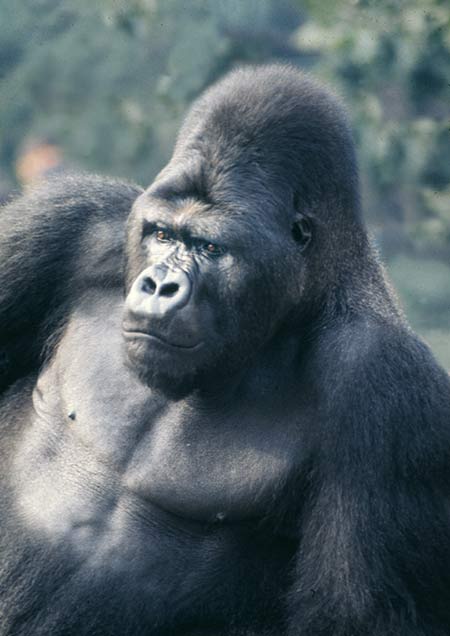Mountain Gorilla Population Rebounds in Uganda

Get the world’s most fascinating discoveries delivered straight to your inbox.
You are now subscribed
Your newsletter sign-up was successful
Want to add more newsletters?
Join the club
Get full access to premium articles, exclusive features and a growing list of member rewards.
The population of mountain gorillas in Uganda’s Bwindi Impenetrable National Park—one of only two place in the world where the rare gorillas exist—has increased by 6 percent since 2002, according to several groups that conducted a recent census.
“This is great news for all of the organizations that have worked to protect Bwindi and its gorilla population,” said Alastair McNeilage, director of the Institute of Tropical Forest Conservation in Bwindi. “There are very few cases in this world where a small population of endangered primates is actually increasing.”
There are now 340 individual mountain gorillas in the park, up from 320 in 2002. The numbers of this critically endangered group have been declining precipitously because their habitat is being destroyed and also due to poaching and their lack of resistance to human diseases.
Between April and June of 2006, researchers set out into the park to gauge how many gorillas there were by counting trails and the nests gorillas construct each night.
Genetic analyses from fecal specimens were also used to help identify and distinguish individuals and reduce the risk of double-counting.
The researchers also considered the impact of humans on the population and found that the gorillas were not using the eastern side of the park, possibly because of human disturbances.
Mountain gorillas also inhabit the Virunga Volcanoes on the borders of Uganda, Rwanda and the Democratic Republic of Congo. A 2003 census of these gorillas counted 380 individuals.
Get the world’s most fascinating discoveries delivered straight to your inbox.
Currently there are 720 mountain gorillas worldwide.
- Rumor or Reality: The Creatures of Cryptozoology
- Rare Gorilla Birth Recorded in Congo
- Image: Gorillas in Peril
 Live Science Plus
Live Science Plus











